|
Books Should Be Free Loyal Books Free Public Domain Audiobooks & eBook Downloads |
|
|
Books Should Be Free Loyal Books Free Public Domain Audiobooks & eBook Downloads |
|
Non-fiction |
|---|
|
Book type:
Sort by:
View by:
|
By: Frank Albert Waugh (1869-1943) | |
|---|---|
 Dwarf Fruit Trees
Dwarf Fruit Trees
This book is a handbook for the home orchardist. The propagation, pruning, choice of variety, and management of dwarf fruit trees, specifically apples, pears, peaches, and plums, are outlined. In addition, there is a section on berry bushes. It is geared towards gardeners in the United States of America and Canada. - Summary by A. Gramour | |
By: Frank Allaben (1867-1927) | |
|---|---|
 Concerning Genealogies
Concerning Genealogies
Written over a century ago, this comprehensive book offers insight into the methods used to research and compile a family history. As stated in the preface of the book, "Strong emphasis is laid upon the importance of employing the historical method..." which is sorely lacking in today's computerized compilations. - Summary by Roger Melin | |
By: Frank Bertram Wade (1875-) | |
|---|---|
 A Text-Book of Precious Stones for Jewelers and the Gem-Loving Public
A Text-Book of Precious Stones for Jewelers and the Gem-Loving Public
| |
By: Frank Evers Beddard (1858-1925) | |
|---|---|
 Book of Whales
Book of Whales
A Book of Whales is a natural history of whales for the layman. - Summary by A. Gramour | |
By: Frank G. Carpenter (1855-1924) | |
|---|---|
 Carpenter's Geographical Reader: North America
Carpenter's Geographical Reader: North America
The purpose of this book is to give to its readers a living knowledge of some of the wonders of the country and continent in which they live. Upon a personally conducted tour they are taken by the author through the most characteristic parts of the North American continent. They travel through the United States, British America, Mexico, and Central America, studying the most interesting features of life and work among the people of each country, learning how they are governed, and what they do in order to live. Much information is also given concerning the natural resources and the physical features of the countries visited. | |
 Carpenter's Geographical Reader: South America
Carpenter's Geographical Reader: South America
In this book the children are taken by the author upon a personally conducted tour through the most characteristic parts of the South American continent. The book will, it is believed, aid in putting flesh and blood on the bones of the geographies, and will give a living interest to geographical study. | |
 Carpenter's Geographical Reader: Europe
Carpenter's Geographical Reader: Europe
The book tries to give its young readers a living knowledge of Europe. The author conducts tours through various parts of Europe giving a glimpse of the people and their lives and livelihoods. He includes as well information on the natural resources and physical geography of those many countries. Summary by BettyB and preface. | |
 Around the World with the Children
Around the World with the Children
An introduction to world geography for young and old alike. Topics such as China, Japan, the American Indian, Europe and the oceans on a beginning level. Summary by BettyB | |
 Carpenter's World Travels: Australia, New Zealand and Some Other Islands of the South Seas
Carpenter's World Travels: Australia, New Zealand and Some Other Islands of the South Seas
Travel stories of the land "Down Under" from 100 years ago. Native life and scenery and commerce of islands such as Tonga and Fiji as well as the bustling city of Sydney. Summary by BettyB | |
 Alps, the Danube and the Near East
Alps, the Danube and the Near East
Journeying through many countries including Romania, Bulgaria, Turkey, Switzerland and Greece, the author gives an in-depth account of many aspects of the culture of the times and the people of the regions. | |
By: Frank Harris | |
|---|---|
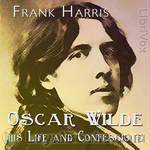 Oscar Wilde: His Life and Confessions
Oscar Wilde: His Life and Confessions
Consumers of biography are familiar with the division between memoirs of the living or recently dead written by those who “knew” the subject more or less intimately, and the more objective or scholarly accounts produced by later generations.In the case of Wilde, as presented to us by Frank Harris, we are in a way doubly estranged from the subject. We meet with Oscar the charismatic talker, whose tone of voice can never be reproduced – even if a more scrupulous biographer had set down his words accurately – and we are perhaps already aware of him as Wilde the self-destructive celebrity who uneasily fills the place of the premier gay icon and martyr in our contemporary view... | |
By: Frank Henderson | |
|---|---|
 Six Years in the Prisons of England
Six Years in the Prisons of England
A Merchant talks about daily life inside prisons of England, describes routines and how prisoners are treated. He notes stories of how fellow prisoners came to be in prison, and his ideas about the penal system, its downfalls and ways to improve it. The reader can see similarities to the problems we still have in regarding "criminals" today. (Introduction by Elaine Webb) | |
By: Frank Lewis Dyer and Thomas Commerford Martin | |
|---|---|
 Edison, His Life and Inventions
Edison, His Life and Inventions
One of the most prolific and multi-talented geniuses the world has ever seen, Thomas Alva Edison's life is indeed an inspiration for each new generation. Today we live in a world that would not have been possible if not for several of his important inventions – the electric light bulb, the motion picture camera, electric power distribution, the phonograph, and a host of other things that we take for granted today. In fact, he still holds the world record for the maximum number of patents, numbering 1093 in all! Edison – His Life and Inventions by Frank Lewis Dyer and Thomas Commerford Martin, published in 1910 was in fact a biography commissioned by Edison himself... | |
By: Frank M. (Frank Morton) McMurry (1862-1936) | |
|---|---|
 How to Study and Teaching How to Study
How to Study and Teaching How to Study
| |
By: Frank Webb (1828-1894) | |
|---|---|
 Garies and their Friends
Garies and their Friends
The book which now appears before the public may be of interest in relation to a question which the late agitation of the subject of slavery has raised in many thoughtful minds, viz. — Are the race at present held as slaves capable of freedom, self-government, and progress. The author is a coloured young man, born and reared in the city of Philadelphia. This city, standing as it does on the frontier between free and slave territory, has accumulated naturally a large population of the mixed and African race... | |
By: Franklin Allison Cresee | |
|---|---|
 Practical Pointers for Patentees
Practical Pointers for Patentees
| |
By: Franklin Beech | |
|---|---|
 The Dyeing of Cotton Fabrics A Practical Handbook for the Dyer and Student
The Dyeing of Cotton Fabrics A Practical Handbook for the Dyer and Student
| |
 The Dyeing of Woollen Fabrics
The Dyeing of Woollen Fabrics
| |
By: Franz Edelsheim (1868-) | |
|---|---|
 Operations Upon the Sea A Study
Operations Upon the Sea A Study
| |
By: Fred H. (Fred Herbert) Colvin (1867-1965) | |
|---|---|
 The Working of Steel Annealing, Heat Treating and Hardening of Carbon and Alloy Steel
The Working of Steel Annealing, Heat Treating and Hardening of Carbon and Alloy Steel
| |
By: Frederic Bastiat | |
|---|---|
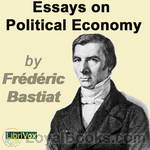 Essays on Political Economy
Essays on Political Economy
Bastiat asserted that the only purpose of government is to defend the right of an individual to life, liberty, and property. From this definition, Bastiat concluded that the law cannot defend life, liberty and property if it promotes socialist policies inherently opposed to these very things. In this way, he says, the law is perverted and turned against the thing it is supposed to defend. | |
By: Frédéric Bastiat | |
|---|---|
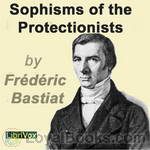 Sophisms of the Protectionists
Sophisms of the Protectionists
"To rob the public, it is necessary to deceive them," Bastiat said and believed. He reasoned, employing repetition to various applications, against fallacious arguments promoting the "Protection" of industries to the detriment of consumers and society. (Introduction by Katie Riley) | |
 Law
Law
"The law perverted! The law—and, in its wake, all the collective forces of the nation. The law, I say, not only diverted from its proper direction, but made to pursue one entirely contrary! The law becomes the tool of every kind of avarice, instead of being its check! The law guilty of that very inequity which it was its mission to punish! Truly, this is a serious fact, if it exists, and one to which I feel bound to call the attention of my fellow-citizens." —Frédéric Bastiat | |
By: Frederic DeWitt Wells (1874-1929) | |
|---|---|
 The Man in Court
The Man in Court
| |
By: Frederic Taber Cooper (1864-1937) | |
|---|---|
 Some American Storytellers
Some American Storytellers
Frederic Taber Cooper, who was an editor and author, provides a superb insight into the works of some of the most popular authors of the turn of the century decade. Excerpt: The subjects of the essays included in this volume differ widely in aim and in accomplishment; but all of them possess, to a considerable extent, the gift that makes them next of kin to the minstrel and troubadour, to the ancient fabulist, and to the forgotten spinner of the world s first nursery tales, the gift of holding the attention by the spell of the spoken word. - Summary by Celine Major | |
By: Frederick A. Talbot (1880-?) | |
|---|---|
 Aeroplanes and Dirigibles of War
Aeroplanes and Dirigibles of War
"Aeroplanes and Dirigibles of War" is an interesting read of the beginnings of air warfare in World War I. Anyone interested in early aviation and armament will find this a fascinating work. By William Tomcho. | |
By: Frederick Adam Wright (1869-1946) | |
|---|---|
 Greek Athletics
Greek Athletics
The history of Greek athletics as it pertains to the Olympics. Describes various activities such as boxing, wrestling, etc. and accounts from witnesses, the Iliad, etc. as they pertain to famous Greeks and events. He discusses Greek views of physical appearance and fitness as they pertain to the games and society and also how and why individual city-states chose to participate in the Olympics. | |
By: Frederick Boyle (1841-?) | |
|---|---|
 About Orchids, a Chat
About Orchids, a Chat
This is not a manual of instruction for orchid growers; though there are many hints on cultivation, and a few paragraphs on how to hybridize. The author is just an enthusiastic amateur orchid lover. He takes the reader on a wander through the dangers and consequences of hunting orchids in the tropical jungles of the nineteenth century, and chats about the extreme peculiarities of orchid growth, behaviour and structure, colouring the essays with his own experiences and with his delight in cultivating these beautiful plants. Beware! A new hobby beckons! | |
By: Frederick Czapek (1868-1921) | |
|---|---|
 Chemical Phenomena in Life
Chemical Phenomena in Life
Published in 1911 as part of the "Harper's Library of Living Thought," this volume presents an introduction to the chemistry of cells in the context of plant physiology and gives an interesting overview of the field of biochemistry and related sciences at the time. The author, Frederick Czapek, was a Czech botanist and professor of Plant Physiology at the University of Prague. He is perhaps best known for his two-volume work on Plant Physiology, "Biochemie der Pflanzen" and for Czapek solution agar or Czapek-Dox medium, a culture medium for cultivation of fungus species such as Aspergillus and Penicillium molds. ( | |
By: Frederick Douglass (1818-1895) | |
|---|---|
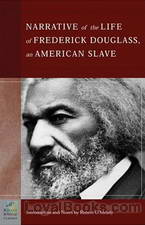 Narrative of the Life of Frederick Douglass
Narrative of the Life of Frederick Douglass
Frederick Douglass was born into slavery on a Maryland plantation. He faced hardship as a child, but later encountered owners who were relatively liberal and allowed him to learn to read, write and be in contact with freed slaves. At the age of 20, he escaped from the plantation and made his way to New York. Though he remained a fugitive, he married and changed his name to avoid being caught. He continued his education and became involved in the Abolitionist Movement. He began touring the country, speaking passionately about the unjust, cruel and inhuman practice of slavery... | |
By: Frederick G. Aflalo (1870-1918) | |
|---|---|
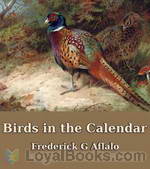 Birds in the Calendar
Birds in the Calendar
Delightful sketches of British wild birds – a bird for every month of the year from the pheasant in January to the robin in December. This collection of articles, reprinted in book form from the periodical The Outlook, is full of fascinating information about bird behaviour and habitat, as well as many interesting anecdotes. Out of date in some respects, particularly in its reference to the (now illegal) collecting of birds’ eggs, this book brings home forcefully how the populations of some British wild birds have declined since it was written. | |